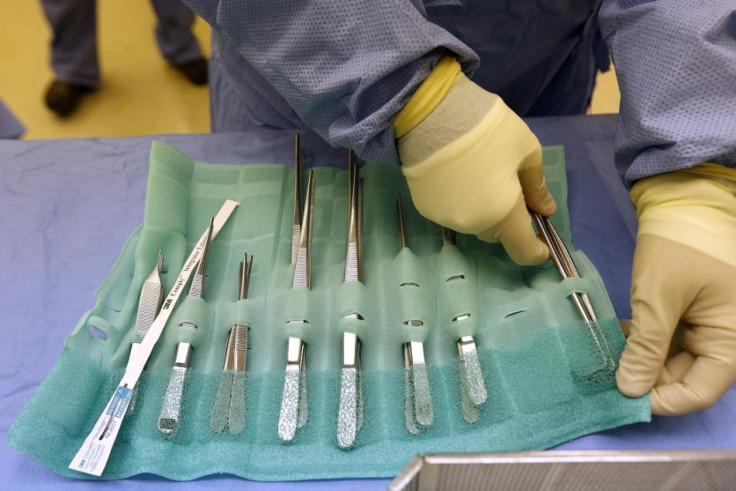Designer Vagina Danger: Rise of Women Having Surgery to Get Better Looking Genitals

There has been a five-fold increase in the number of girls and women having cosmetic surgery on their vaginas, researchers have found.
A study by the Royal College of Obstetricians and Gynaecologists (RCOF) and the British Society for Paediatric and Adolescent Gynaecology (BritSPAG) found over 2,000 operations of this kind were carried out in 2010.
As a result, experts have warned about the risks and dangers involved in female genital cosmetic surgery (FGCS), especially among girls below the age of 18 as their vaginas have not fully developed.
FGCS involves procedures that are not medically needed. They change the structure or appearance of the external genitalia or internally in cases of vaginal tightening.
A paper published by the RCOG looked at why women and girls are having FGCS and found in many cases the primary reason was appearance. Other reasons involved difficulty during sex and discomfort when wearing tight clothes.
The experts said short-term risks involve bleeding and infection, while there can also be long-term damage to sensitivity and sexual function because surgery can disrupt nerve supply. They warn FGCS before full development can also lead to long-term problems.
Suzi Leather, chair of the RCOG's Ethics Committee, said: "The Ethics Committee at the RCOG is concerned about the recent increase in labial reduction procedures, fuelled in part by the mass media and inaccurate advertising.
Psychological assessment
"Some women are requesting it solely for cosmetic reasons and these decisions are not always being made on informed understanding of the normal variations that exist but influenced by images from popular culture and the pornography industry. We need to inform women that everyone is unique and that variation in appearance is normal in the vast majority of cases."
Making recommendations for FGCS, the authors say women should have accurate information about the surgery as well as counselling for body image distress. They also said advertising should not mislead women about what is normal and what is possible with surgery.
BritSPAG said more should be done to find out why adolescent girls are unhappy with the appearance of their vaginas, including accessibility to unrealistic appearance of female genitals in popular culture.
Paul Wood, from BritSPAG said: "Labiaplasty is a form of FGCS and there is no scientific evidence to support its practice. For adolescents the risk of harm is even more serious.
"It is important that clinicians inform girls and where appropriate their guardians about labial anatomy, its development and how there is variation. In addition girls should be aware of distortions in popular culture, the unknown risks and efficacy of procedures and ways to manage labial discomfort. When significant distress is detected, these girls should receive a psychological assessment."
Leather added: "Healthcare professionals should have access to accurate and sensitive information on genital variation to give to women and be sympathetic to individual female body insecurities. Education, support and advice should be at the heart of clinical practice in this area."
© Copyright IBTimes 2025. All rights reserved.






















